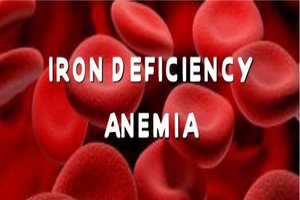- Home
- Editorial
- News
- Practice Guidelines
- Anesthesiology Guidelines
- Cancer Guidelines
- Cardiac Sciences Guidelines
- Critical Care Guidelines
- Dentistry Guidelines
- Dermatology Guidelines
- Diabetes and Endo Guidelines
- Diagnostics Guidelines
- ENT Guidelines
- Featured Practice Guidelines
- Gastroenterology Guidelines
- Geriatrics Guidelines
- Medicine Guidelines
- Nephrology Guidelines
- Neurosciences Guidelines
- Obs and Gynae Guidelines
- Ophthalmology Guidelines
- Orthopaedics Guidelines
- Paediatrics Guidelines
- Psychiatry Guidelines
- Pulmonology Guidelines
- Radiology Guidelines
- Surgery Guidelines
- Urology Guidelines
Ferric carboxymaltose reduces hospital admission rates in Chronic heart failure

Iron deficiency is known to occur with a greater frequency in HF, is associated with unfavourable clinical outcome and has prognostic significance. Anemia in CHF is associated with increases in left ventricular (LV) mass, increased markers of HF like natriuretic peptides, and higher number of repeat hospitalizations. Dr.Jamshed Dalal from Centre for Cardiac Sciences, Kokilaben Dhirubhai Ambani Hospital, and associates conducted a meta analysis to evaluate effect of ferric carboxymaltose on hospitalization and mortality outcomes in chronic heart failure.The researchers found that Ferric carboxymaltose FCM reduces hospitalization rates in CHF but may not reduce mortality outcome.The findings and results of research have been published in an article in Indian Heart Journal.
In the past ,the EFFECT-HF trial tested whether correction of iron deficiency with ferric carboxymaltose (FCM) might improve peak oxygen consumption (peak VO2), an objective measure of exercise tolerance in HF.The researchers found that treatment with intravenous FCM improves iron stores and functional capacity in patients with HF with reduced ejection fraction (HFrEF) and iron deficiency.
Development of anaemia in HF is multifactorial. Defective erythropoiesis predominates in HF besides contribution from renal dysfunction and neurohormonal and pro-inflammatory cytokine activation leading to iron deficiency (ID) state.12 Further, defectiveiron absorption, and reduced re-absorption of recycled iron contribute to Iron Deficiency.In one of previous researches it has been found that presence of anaemia was found to increase risk of death in HF compared to non-anaemic population (46.8% Vs 29.5%) in a follow-up of six months.
In the Meta analysis,the researchers performed a literature search across PUBMED, Google Scholar and trials database www. clinicaltrials.gov to search for randomized controlled trials (till August 2016) comparing FCM to placebo in CHF with or without anaemia. Published human studies in English language which reported data on mortality and hospitalization rates were included. Primary outcome was rates of HF hospitalizations and secondary outcomes were hospitalization due to any cardiovascular (CV) cause,death due to worsening HF and any CV death.
The researchers included two(n = 760; 455 in FCM and 305 in placebo arms) in final analysis out of 17 studies identified . They observed significantly lower rates of hospitalization for worsening HF in FCM arm [Risk Ratio (RR) 0.34, 95% confidence interval (CI) 0.19, 0.59, p = 0.0001] as well as for any CV hospitalizations [RR 0.49, 95% CI 0.35, 0.70; p < 0.0001] (figure). No heterogeneity in studies was seen for these two outcomes (I2 = 0%, p > 0.05). No significant treatment effect with FCM was noted in mortality from worsening HF (RR 0.41, 95% CI 0.02, 7.36; p = 0.55) or any CV death (RR 0.80, 95% CI 0.40, 1.57;p = 0.51).
The authors concluded that Ferric carboxymaltose FCM reduces hospitalization rates in CHF but may not reduce mortality outcome. This finding needs further evaluation in a large, prospective, randomized controlled trial.

Disclaimer: This site is primarily intended for healthcare professionals. Any content/information on this website does not replace the advice of medical and/or health professionals and should not be construed as medical/diagnostic advice/endorsement or prescription. Use of this site is subject to our terms of use, privacy policy, advertisement policy. © 2020 Minerva Medical Treatment Pvt Ltd